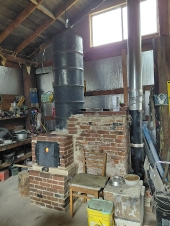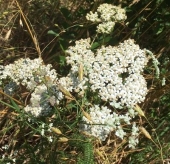I have found an integral dilemma to being someone selling trees while also wanting to help as many tree thrive long term as possible. In my observation and that of many permies, trees do better if in their forever home as young as possible, with planting seedlings being the ideal for longterm health, resilience, and drought tolerance. So the conundrum arises that the trees people are willing to pay more for, larger ones, are the most likely to fail or falter from transplant stress, and will be surpassed by trees planted much younger or as seeds.
Some have the right market—higher end real estate with ongoing development driving demand and providing new buyers—and landscaper customers who are happy to get paid to replant as many failed trees as their customer will pay for. This is not all nurseries, and I do not spite those in this lane but it does not compel me. Others, like Burnt Ridge, seem to have found a niche where they can sell wide ranges of ages in volumes large enough to allow for very small margins on each sale, with the apparent primary goal of getting more trees planted in the world while sustaining the operation. Burnt Ridge is wonderful, but I just do not know how their economics and logistics work out.





